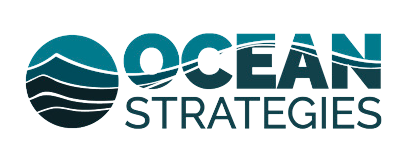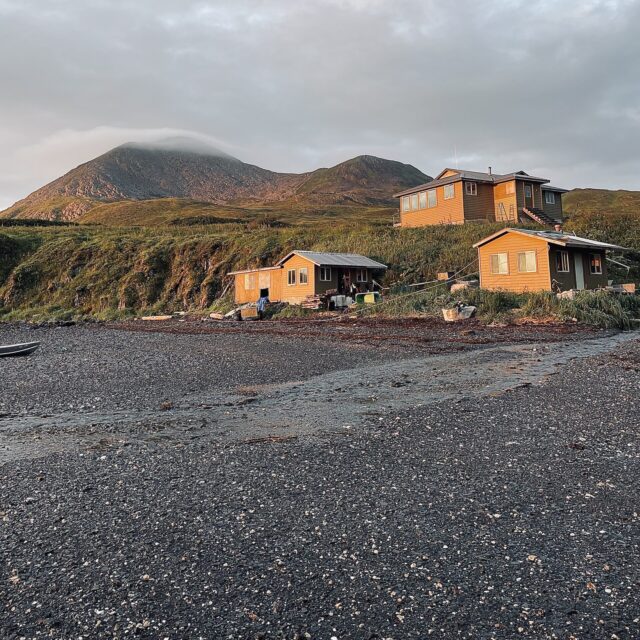DOWNLOAD: MSA REAUTHORIZATION REPORT
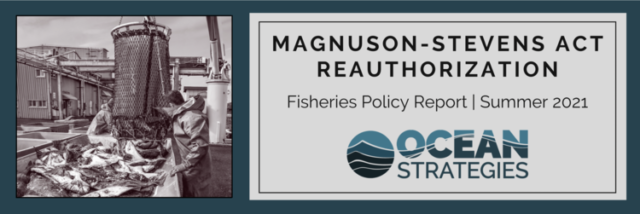
The Ocean Strategies Fisheries Policy Report provides timely policy and industry updates that connect America’s sustainable seafood supply chain — including grocers, restaurants, distributors, transportation and the many other businesses that depend upon seafood access.
Not already signed-up? Receive future updates by signing up.
Magnuson-Stevens Act Reauthorization
Federal fisheries law Introduced in Congress
After a lengthy input-gathering process, Representatives Huffman (D-Calif.) and Ed Case (D-Hawaii) introduced a bill in late July to reauthorize the nation’s federal fisheries law — the Magnuson Stevens Act. The Sustaining America’s Fisheries for the Future Act poses a suite of updates to the law governing the harvest and conservation of America’s federal fisheries.
Click here for a helpful Fact Sheet summarizing the bill, and see below for a detailed interview with Congressman Huffman covering key issues.
Of most interest to the seafood supply chain is how proposed updates will impact America’s access to a supply of sustainable seafood, and how that supply dynamic intersects with today’s historic boom in consumer demand and key conservation priorities in an era of climate change and social justice. This is the nexus Ocean Strategies is tracking and reporting back on as the legislation moves through the House during the 117th Congress. We expect the reauthorization process to continue into the next Congress, and as with most laws, passage depends on windows of opportunity.
While its destiny in this Senate is unclear, we know that the dialogue around an MSA reauthorization will increase. Meaning — now is the time for seafood stakeholders to make clear their top priorities, ensuring they are carried forward in future iterations and to the finish line should that window open. We can do this by:
-
Applauding Rep. Huffman’s multi-year efforts to listen and understand fishery stakeholders viewpoints,
-
Understand a variety of perspectives of the currently included updates from across users, communities and organizations.
-
Proactively engage on elements of the bill should you or your partners wish.
Interview with Congressman Jared Huffman:
Click the image above to watch and listen to the full interview with Rep. Huffman about the Sustaining America’s Fisheries for the Future Act with Ocean Strategies Principal and lifelong commercial fisherman, Brett Veerhusen. To read the full text of the interview click here.
Q: Congressman, thank you and I’m looking forward to diving in more on the Sustaining America’s Fisheries for the Future Act – which you introduced last week with your colleague Representative Ed Case from Hawaii seeking to reauthorize the Magnuson-Stevens Act. But first, we like to tackle the hard questions first. What’s your favorite seafood to eat and why?
A: Wow, that’s a wonderful dilemma because there’s so much good seafood out there! Even though I represent a lot of salmon fishermen, I have to say halibut. You can cook halibut in every possible way. It’s a versatile and delicious fish.
Q: I love halibut too because it’s firm but flakey and you can cook it almost any method. Alright, back to Magnuson. You held 8 listening sessions around the country with a variety of stakeholders, including commercial & recreational fishermen, tribal representatives, environmental NGOs, supply chain representatives and more. What was the biggest common concern shared amongst these folks, and how does this bill address it?
A: One thing we heard loud and clear from every stakeholder community is the need for better data and better science in order to make decisions — everyone agreed on this. Climate change was also something we heard every place we went, but what we heard differed. In the Gulf of Maine for example they’re seeing more stock shifts than in any other American fishery zone — they totally get that we have got to tackle this problem. Original MSA language and regional Council framework didn’t even contemplate this and there’s no mechanism or directive to include it in current Council work. We’re trying to move all Councils forward into this climate-ready fisheries paradigm and that will look different in each region.
We were talking earlier about Bristol Bay — one of the takeaways if we’re going to have climate-ready fisheries is that we have to identify our fishery strongholds and Essential Fish Habitat, and have meaningful tools to protect those things. We are going to need more protections for fisheries and habitat going forward if we are going to adapt and get through the climate change that is coming.
“Climate change was something we heard every place we went, but what we heard differed.”
Q: Getting better data and understanding impacts from climate change all require important funding. Under MSA, federal fisheries management is driven by scientific and stakeholder-driven processes, so how can we fund better science and data to incorporate climate change within fisheries management?
A: We are definitely going to have to step up the funding side of this. We can talk about the need for more science and data but at some point this does cost money. I will do my best as we reauthorize Magnuson to put the best statute on the books. But we will need our partners to help us get dollars on the table annually and make it work. It’s critical in having as much unity as possible within the fishing community so that that coalition can then go to appropriators and get those dollars.
Q: As far as specific provisions the bill makes a variety of changes that enhance specific management practices — rebuilding plans, data collection and accountability, habitat protections, and bycatch reductions. Let’s zoom in on that last one, as an example of how this bill takes on management challenges. I’ve been a fisherman my whole life and understand the unintended harvest of some species is almost unavoidable, but we always seek improvement. The bill strengthens language to reduce bycatch. Why is this important?
A: Bycatch as you mentioned is something that is inevitable in most types of fishing. We haven’t made the kind of progress on bycatch reduction that we need to make. If you think of the productivity of our oceans and the demand for seafood, we really can’t afford to have huge levels of bycatch. It’s terrible for the ecosystem, it’s wasteful, and if we’re going to be catching these fish we need to get them to market and find a way to actually use them. So all of these factors compel us to do more. We’ve had a lax approach to bycatch reduction over the last many years.
Q: You mentioned the need for supply to meet demand. The Covid-19 pandemic accelerated seafood consumption and demand within the United States. In fact, domestic retail seafood sales continue to rise at a faster pace than beef, chicken and pork. Additionally, the FDA is now recommending that all Americans, including children and pregnant women, eat more seafood than we currently do. How does an updated MSA support this healthy increase in America’s seafood consumption?
A: In several ways, the most important of which is making sure there are sustainable American fisheries to provide seafood, so we’re not importing mystery seafood. It’s a one two punch — helping our domestic fishers be successful and productive, and have sustainable harvests year in and year out, and getting at the problem of traceability and the nebulous nature of a lot of our seafood importing.
“It’s a one two punch — helping our domestic fishers be successful and productive, and have sustainable harvests year in and year out, and getting at the problem of traceability and the nebulous nature of a lot of our seafood importing.”
Q: The bill also includes support for working waterfronts infrastructure — through both funding and a new task force at the Dept. of Commerce. How do infrastructure improvements coincide with your vision for a Magnuson reauthorization? How does that support sustainable food production?
A: This is another way in which we need to support and sustain U.S. fishers. In many places, the infrastructure that they depend on has decayed. I think about up and down my district, just the refrigeration side is a mess. There are so few places where there’s good refrigeration in dock facilities; everything they need is in disrepair. This is important not just for fishers, but for everybody that is connected to working waterfronts — the folks that make their living on the water and the whole seafood supply chain.
A related provision is to modernize the fishery disaster relief program. We will continue to see more fishery disasters due to climate change. It’s currently such a slow and unresponsive system. So we do include provisions to set those timelines and move the money out to those affected. Hopefully that will be another way to sustain the industry.
Q: Passing a bill is no easy task and we know there needs to be broad momentum and consensus in both the House and Senate to pass an MSA reauthorization. What do you see as the path forward for your bill and how should people weigh in going forward?
A: It’s hard to pass an act of Congress in the best of times let alone right now, because our politics are so fractured and dysfunctional. Marine fisheries used to be non-partisan, so my hope all along is that if we put in place a really honest, transparent, and inclusive process that maybe we can get back to that non-partisanship.
I see reason for optimism. People appreciate the way we’ve approached this. Many of my Republican colleagues have told me they appreciate it too. I don’t yet have any Republican co-sponsors on this bill but I’m not giving up on getting them. None is more important than Don Young of Alaska, one of the original authors of the Magnuson-Stevens Act — he’s a hugely important part of this policy space. I have gotten a lot of feedback from him and I have made changes to the bill to try and address his concerns and suggestions. We’ve still got a few things to iron out but I’m not giving up at all on going shoulder to shoulder with Don Young because it will become much easier to push something through the Senate.
“Marine fisheries used to be non-partisan, so my hope is that if we put in place a really honest, transparent, and inclusive process that maybe we can get back to that non-partisanship.”
Q: Before we close Congressman, is there anything else you’d like to share?
A: The bill is in print, that’s the second step. The first was the listening tour with all the feedback we got back, and then a discussion draft that circulated for months while we took more input. The bill will be moving forward to a hearing sometime in September or October. As it goes forward that doesn’t mean the opportunity for feedback is over. We continue to welcome folks’ thoughts, we want this to be inclusive and to find as much consensus as possible, so stay tuned and hopefully keep working with us. It’s important that we reauthorize this bill. Even though it’s a broadly popular law, when you don’t have that reauthorization there’s less political impetus for appropriators to put those dollars on the table, and for agencies to request budget allocations for programs in a law that is expired.
Let’s get this thing reauthorized and we’ll fine tune it and modernize it along the way and I think that will be a really, really good thing for the fishing community. — Rep. Huffman
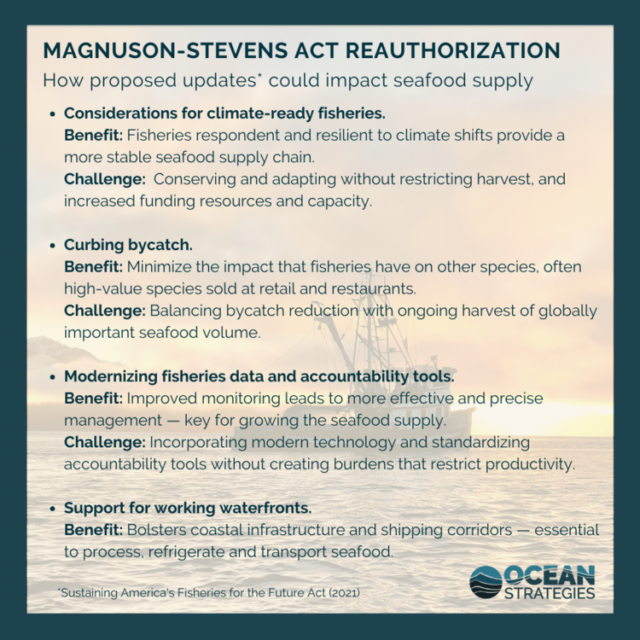
What Stakeholders Are Saying
Chris Brown, President of Seafood Harvesters of America
-
We must take a holistic approach and look beyond simply regulating commercial fishing activity. The concept of our ‘Blue Economy’ is new since the last MSA reauthorization and now must ensure that our fishery management systems can account for the faster pace of development in our nation’s ocean and that its impacts are accounted for in our management system… Rigorous science and accountability across all sectors should be the first response to the call for developing climate-ready fisheries. — SHA press release
Linda Behnken, Executive Director of the Alaska Longline Fishermen’s Association
-
The bill recognizes that climate change must become integral to ocean governance and expands protections for Essential Fish Habitat, both critically important changes that are long overdue. The oceans are changing rapidly, and management must be both responsive to change and broadly protective of fisheries habitat to ensure the long-term productivity of our nation’s fisheries and the economic health of our fishing communities. — FCC press release
Chris Horton, Senior Director of Fisheries Policy for the Congressional Sportsmen’s Foundation
-
Congressman Huffman’s thorough process in engaging stakeholders prior to and during the development of this legislation should be commended. While we think there are areas where the bill could be strengthened for the benefit of recreational fisheries, it represents a good starting point to begin the process of reauthorizing the Magnuson-Stevens Act and building upon recent improvements by the Modern Fish Act. — ASA press release
Eric Brazer, Deputy Director of the Gulf of Mexico Reef Fish Shareholders’ Alliance
-
Our oceans may be dynamic, but the core tenets of the Magnuson-Stevens Fishery Conservation and Management Act are not – strong, credible science; accountability for all; adherence to catch limits; and a seat at the table for proactive commercial fishermen that are interested in real solutions. — Shareholders’ Alliance press release
Willy Goldsmith, Executive Director of the American Saltwater Guides Association
-
By enhancing protections for habitat and forage fish, tightening requirements for rebuilding stocks, and better integrating climate change considerations into management, this bill builds on improvements to the law made in previous reauthorization efforts. The emphasis on improving recreational catch data, including by integrating data from multiple sources, will help ensure that management decisions on based on the best available information from our sector. — ASGA press release
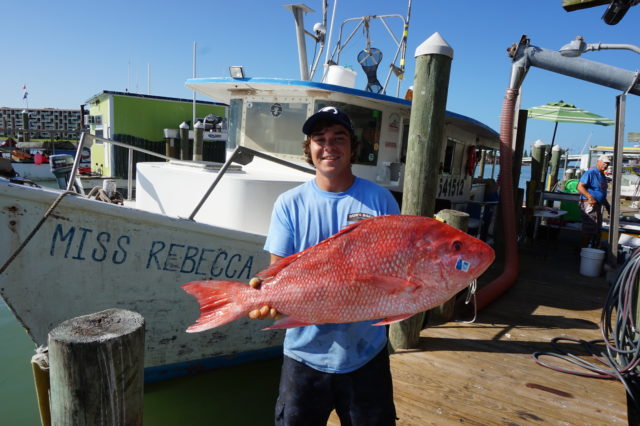
What To Expect Next
The conversation and increased attention to fisheries management will be inevitable and more public. Informing and coordinating early between both Government Relations and Communications departments within companies to help align company staff around the opportunities and risks of taking any particular position will be helpful. Expect the following:
- Uptick in MSA news and opinions
- Continued opportunities to engage through op-eds, sign-on letters, shared social media and direct advocacy to Hill offices.
- Hearings in House Natural Resource Committee in fall/winter 2021
A reauthorization bill may move through the House Natural Resource Committee, but is unlikely to get Congressional approval in the 117th Congress due to dynamics in the Senate. But, a lot can change, political calculations made especially gearing up for another election cycle.
Additional MSA Background
The MSA was originally enacted in 1976, and is reauthorized approximately every 10 years — most recently in 2006. The law establishes eight Regional Councils that determine management plans based on 10 National Standards of fisheries conservation and management. MSA and its related stakeholder processes lay the framework for America’s system of science-based fisheries management.
To help inform the new MSA legislation, Rep. Huffman held eight listening sessions around the country. The Congressman heard from roughly 80 different experts and stakeholders such as commercial and recreational fishermen, processors, NGO’s, supply chain representatives and more. A discussion draft of the bill was released in December 2020, incorporating this vital stakeholder input.
These amendments hone in on provisions that are significant to fishing-dependent communities — bolstering working waterfront infrastructure and increasing access for these communities. The seafood retail sector stands to benefit from increased funding that will support seafood marketing efforts. A key condition that the commercial harvesting sector has historically advocated for, better science and data, is also being addressed as the bill contains important improvements to electronic monitoring and accountability measures like reducing bycatch.
A key change in language is also being addressed — the term “overfished” becomes “depleted.” “Overfished” has historically been used to describe a fishery whose biomass is below the maximum sustained yield. However, the recent effects of climate change can contribute to this decline in biomass as well as impacts from fishing, so this change is being applauded by many stakeholder groups.
